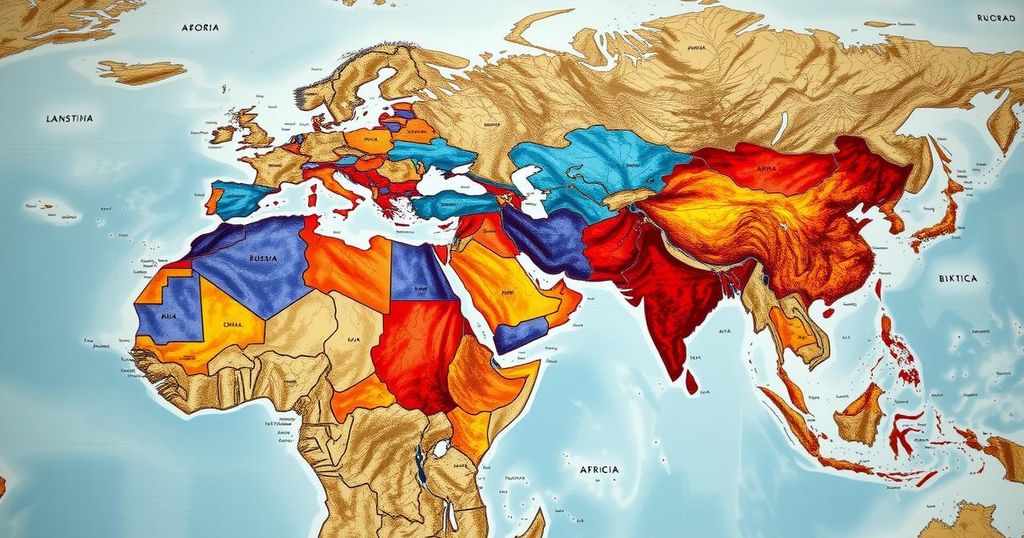The Declining Russian Influence in Africa: A Great Power in Retreat

Russia’s aspirations in Africa are being challenged by overstretched military resources, increasing violence, and declining support from local governments. The Kremlin’s narrative of being a power broker is losing traction as nations like Mali, Burkina Faso, and Niger reassess their alliances in light of Russia’s diminishing capabilities, particularly in the wake of the Ukraine conflict and logistical setbacks. The engagement may shift towards countries like Turkey, signaling a potential decline in Russian influence in Africa.
Despite efforts to portray itself as a significant force in Africa, Russia’s influence is waning, evidenced by its mercenaries being overstretched and underprepared. Recent events, including the killing of Russian soldiers in Mali by Islamist groups, reveal a stark contrast to the Kremlin’s propagandistic narrative. While Russian mercenaries, notably the Wagner Group, initially gained ground through disinformation and involvement in coups, their capabilities have diminished as Russia becomes embroiled in the Ukraine conflict and faces military setbacks. These challenges have contributed to a deteriorating security environment in several African nations, raising concerns among local governments regarding their reliance on Russian support.
In Mali, the Russian presence has led to increased civilian violence despite initial successes. Concurrently, Moscow’s engagement in Burkina Faso and Niger is limited, with local forces indicating they are seeking diversification away from Russian military assistance. Turkey is emerging as a potential alternative partner as African nations reassess their alliances. Russia’s military operations now face significant logistical hurdles due to the uncertain future of their airbase in Syria, which previously facilitated their operations in Africa. Furthermore, Russia’s economic engagement pales in comparison to Western nations, further complicating its standing on the continent.
Ultimately, Russia’s influence in Africa is characterized more by a veneer of strength fueled by propaganda rather than substantial military or economic power. The Kremlin’s inability to deliver consistent support is becoming increasingly apparent, and as African nations seek to diversify their security partnerships, Russia’s once-prominent role appears to diminish significantly.
The dynamics of international relations within Africa have been influenced heavily by historical narratives, particularly regarding post-colonial support from various global powers. In recent years, Russia has sought to establish itself as a key player in Africa, attempting to capitalize on anti-Western sentiments and the desire among some regimes for partnerships that promise military support. However, Russia’s military involvement, particularly through private contractors, has often resulted in increased violence and instability in the regions it engages. The Kremlin’s strategic alliances have become strained due to various military challenges and insufficient economic support, leading to a reevaluation of its role and efficacy on the continent.
In conclusion, Russia’s ambitions to be regarded as a great power in Africa are undermined by its overstretched military capacity, a loss of key logistical bases, and diminishing effectiveness in addressing security needs of African nations. As local governments explore alternative partnerships and the human cost of Russian military involvement continues to rise, Moscow’s strategic footing is increasingly precarious, signaling a potential decline in its influence across the continent.
Original Source: foreignpolicy.com








